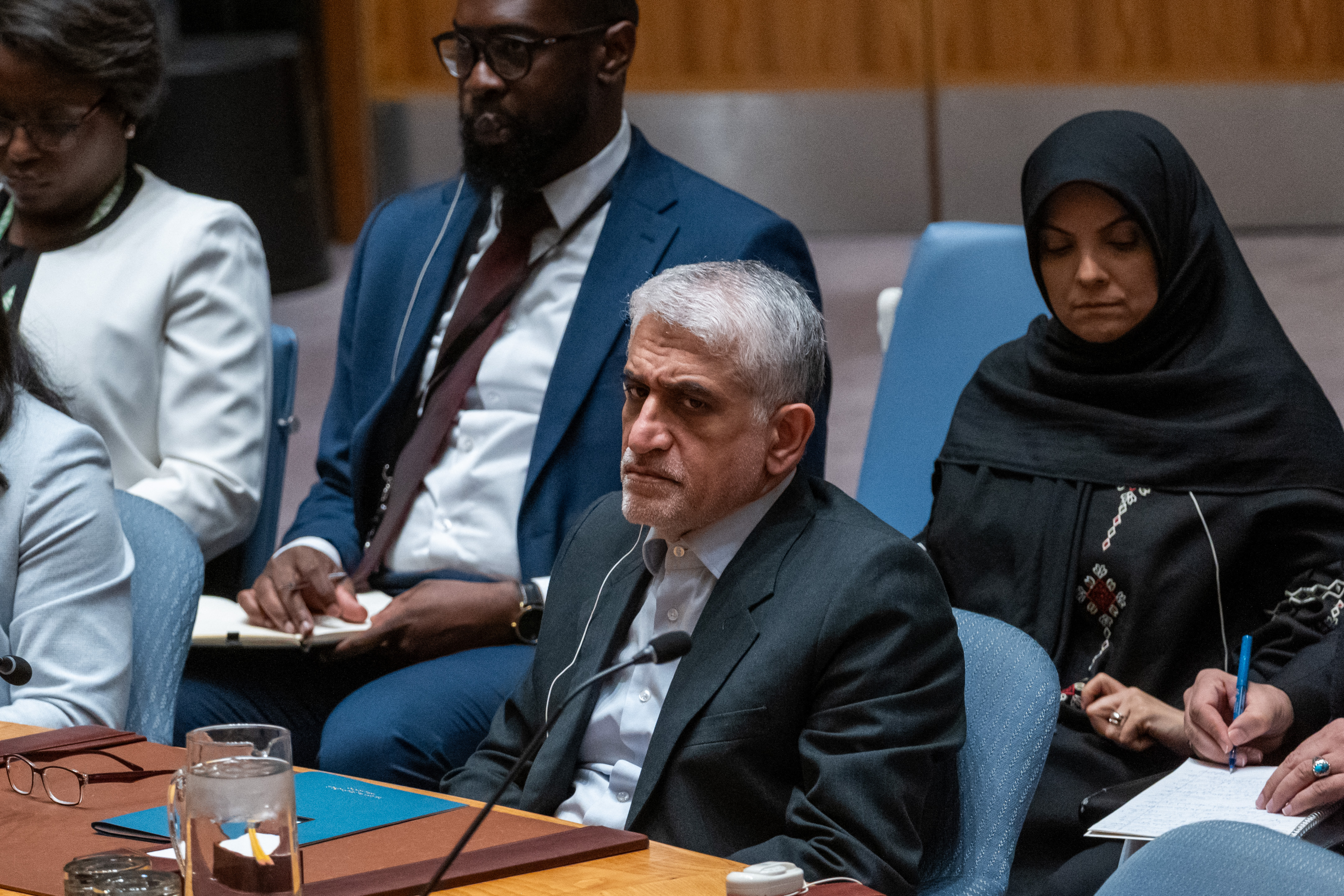
TEHERAN - Iran's envoy to the United Nations (UN) has warned that if Europe "misuses" the snapback mechanism, it will receive the country's "decisive and proportionate" response, the official news agency IRNA reported early Wednesday.
Amir Saeid Iravani, Iran's permanent representative to the UN, made the remarks at a UN Security Council meeting Tuesday on the implementation of Resolution 2231, which endorses a 2015 nuclear deal between Teheran and world powers.
The snapback mechanism is a clause in the nuclear deal, formally known as the Joint Comprehensive Plan of Action (JCPOA), that would allow the other parties to re-impose all international sanctions should Iran fail to comply with the agreement.
ALSO READ: Iran's atomic chief says increase in IAEA's inspections ‘natural’
Iravani said Iran "categorically" rejected any threat by the E3 group of France, Germany and Britain of using the snapback mechanism, stressing that the mechanism was not a "tool in the hands" of Western nations for threatening Iran.
Despite what he called "baseless" accusations from the E3 and the United States, Iravani reiterated that Iran remained committed to cooperating with the International Atomic Energy Agency (IAEA) in accordance with its obligations. He also underscored Tehran's ongoing commitment to diplomacy and dialogue to resolve outstanding issues.
Iravani criticized the passing of an anti-Iran resolution at a recent IAEA Board of Governors meeting, especially after a "successful" visit by IAEA Director General Rafael Grossi to Tehran in November. He argued that the resolution, driven by political motives, undermined efforts to build trust and foster constructive diplomatic engagement.
READ MORE: Iran wants sanctions 'snapback' removed in any new nuke talks
Iran signed the JCPOA in 2015, agreeing to limit its nuclear activities in exchange for sanctions relief. However, the United States withdrew from the deal in 2018 and re-imposed sanctions, prompting Iran to scale back its commitments. Efforts to revive the agreement, ongoing since 2021, have so far stalled.


